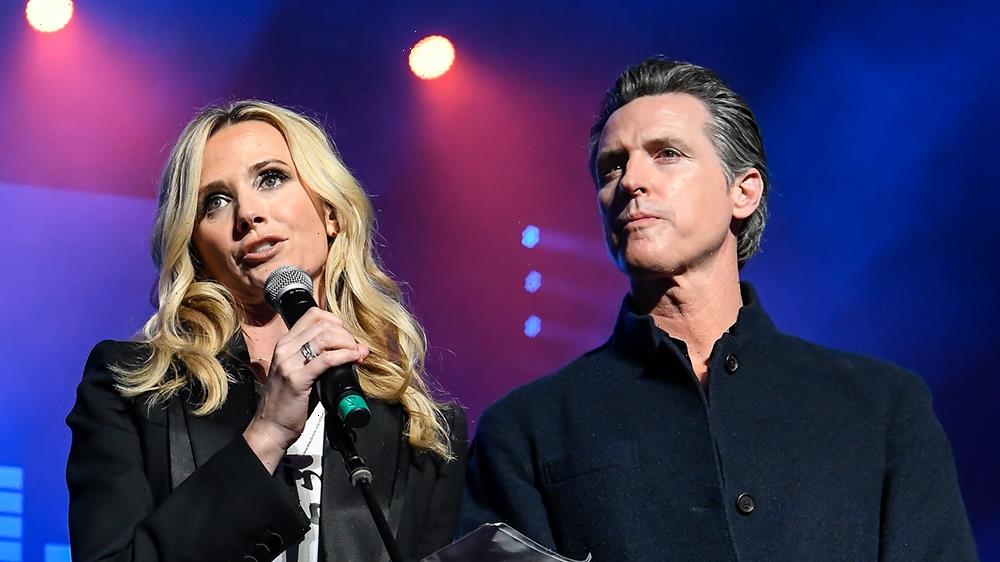Jennifer Siebel Newsom, one of the star witnesses of Harvey Weinstein’s west coast trial, says justice was served with the convicted rapist’s 16-year sentencing on Thursday, but warns there is more work to be done.
A filmmaker and actor, Siebel Newsom is married to California Gov. Gavin Newsom, making her the First Partner of the state. She testified in Weinstein’s trial, accusing him of raping and sexually assaulting her in 2005. While the jury found the disgraced Hollywood producer guilty on three charges, they acquitted him of the two charges related to Siebel Newsom’s accusations.
Speaking in a video posted to her social media on Thursday, Siebel Newsom spoke about her experience throughout the trial and called on the public to end the culture of sexual abuse.
“What Harvey Weinstein did to me was the worst. His assault was excruciatingly traumatic,” Siebel Newsom said in the video. “And for years, he walked away unfettered, while I spent years nursing my wounds. I’ve tried all sorts of therapies trying to make sense of it all, trying to heal the physical manifestations of trauma. We break women by ignoring the very real ramifications of sexual assault and violence against them.”
She continued, “This entire process has been one of the hardest experiences of my life. But the most important takeaway is that we all have a role to play in healing this culture in which violence against women is the norm.”
Siebel Newsom’s work in film centers around women’s stories. As a political figure, she has become a prominent advocate for gender equality, launching campaigns in the state of California and founding the non-profit organization The Representation Project. She chose the title of “First Partner,” rather than “First Lady,” in an effort to signal more inclusivity. In 2011, she directed the Sundance documentary “Miss Representation,” which explores sexism in American society and media.
Siebel Newsom’s tearful testimony garnered the most headlines of Weinstein’s trial, creating a media frenzy at the courthouse the day she took the stand. She became visibly emotional when describing the alleged assault as a “horror” and her “worst nightmare.” During her testimony, she reminded jurors that in 2005, when she alleges she was assaulted after meeting Weinstein at the Toronto International Film Festival, she was an up-and-coming actor and producer and did not hold the same political stature she does today. “Harvey Weinstein was more powerful than me,” Siebel Newsom testified. “He was like the kingmaker. He was the top of the industry.”
Siebel Newsom was subject to harsh cross-examination from Weinstein’s defense. His attorneys pulled up a binder of emails she had sent over the years, questioning her continued communication with Weinstein, and she explained that she stayed in touch with Weinstein because he was so powerful, so she felt she had to stay in his good graces for professional purposes. The defense repeatedly noted that her husband accepted Weinstein’s political donations. During closing arguments, one of Weinstein’s attorneys said Siebel Newsom was lying on the stand. “What you saw was an act,” he told the jury. “It was a theatrical, overly dramatized performance.”
On Thursday, Siebel Newsom condemned victim-shaming that prohibits survivors from coming forward, including defense tactics, and spoke about the difficult reality of what it was like to participate in the Weinstein trial.
“During this recent trial, in the almost three years leading up to it, I was asked, like others, to relive and lay bare the most horrific and humiliating experience of my entire life with complete strangers, the general public and even my own family in ways so harmful, more harmful than you can imagine,” Siebel Newsom said. “When we ignore a woman’s cries of pain, when we tell her that she is to blame, that she asked for it…we don’t just deny her experience, we deny her natural trauma response.”
“And when survivors ultimately have the courage to come forward,” she later said, “Defense attorneys use sexism, misogyny and aggressive bullying tactics to intimate, demean and ridicule them. This is how we have a culture that enables sexual predators. And we are all the worse for it.”
Siebel Newsom called out Weinstein’s enablers, and called on “male allies in positions of privilege” in the entertainment and tech industries to “stand up to the few bad apples.” She urged, “We survivors cannot do it on our own.”
“Let’s not forget, Weinstein was a serial predator for decades with well over 100 women on record claiming he sexually assaulted them. He is not the only one, of course,” Siebel Newsom said.
“As was the case of Weinstein, over and over again too many catered to him in public, excused his lewd behavior and turned a blind eye to his questionable relationships with young actresses and models,” she continued. “This culture enabled him to pay off or initiate his victims, avoiding accountability for decades, and the circle of silence and enabling went even further as people continued to do business with him, run his companies, sit on his boards, protect him in the press and turn a blind eye to one of the worst kept secrets in the entertainment industry.”
Read More About:
Source: Read Full Article
